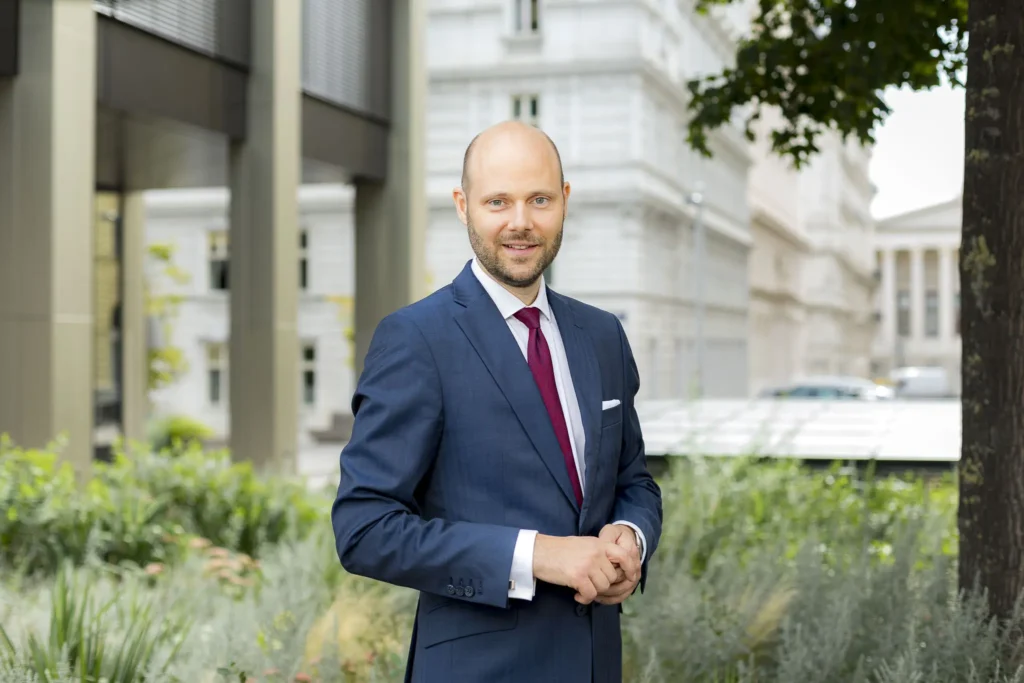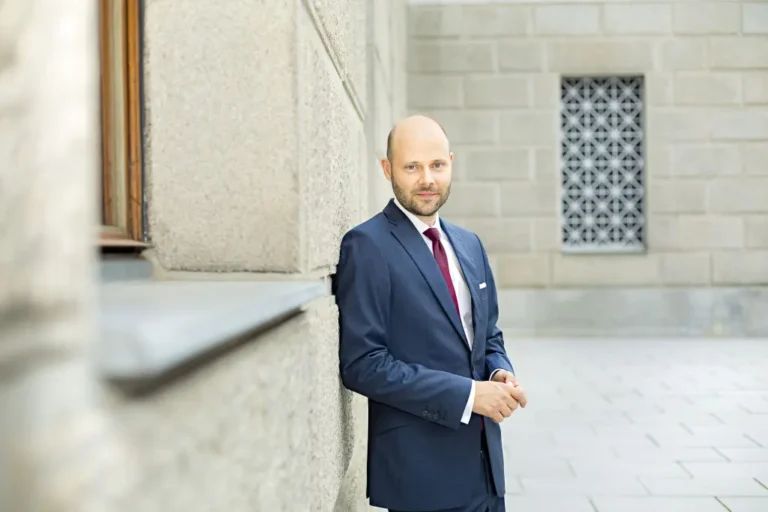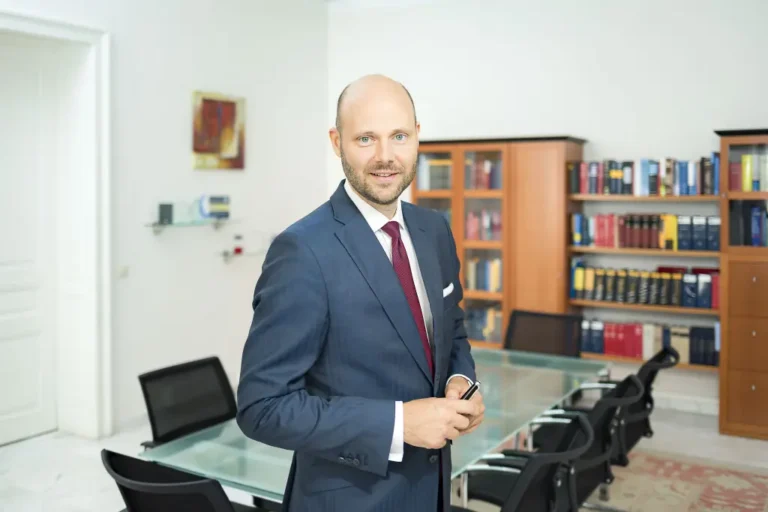Law Firm IBESICH
Your Divorce Lawyer in Vienna
Expert legal advice on separation & divorce

Divorce advice for women and men
A divorce is a profound turning point in life – both emotionally and legally. Especially in this exceptional situation, it is important to have reliable support.
A specialized divorce lawyer in Vienna helps you to keep an overview, safeguard your rights and find fair solutions for everyone involved.
Separations often bring uncertainty with them: What happens next? What happens to your joint children or the family home? In such moments, an experienced family law attorney is at your side, who not only keeps an eye on the legal aspects but also responds to your situation with empathy.
Trust and expertise are crucial here – because your lawyer should be both a legal expert and an understanding companion in a difficult phase of life.
How can a divorce lawyer support you?
A divorce lawyer takes on a wide range of tasks to support you from the initial consultation through to the divorce decree. At the beginning, they clarify your questions in a detailed consultation, explain the legal situation and show you your options. Afterwards, they guide you step by step through the divorce proceedings – always with the aim of achieving the best possible outcome for you.
Typical tasks of a divorce lawyer include, among others:
- Legal advice: They explain the legal principles and your entitlements in an understandable way, for example regarding maintenance or custody rights.
- Negotiation and mediation: Your lawyer contacts the other side in order to reach out-of-court settlements – particularly important in an amicable divorce.
- Representation in court: Should it come to proceedings, the divorce lawyer represents you in court in Vienna and throughout Austria and is committed to your interests – indispensable especially in a contested divorce.
- Drafting contracts and documents: If necessary, the lawyer drafts divorce agreements or settlement offers and takes care of all necessary applications and documents.
Thanks to this comprehensive support, you can be sure that no detail will be overlooked. Your lawyer takes over the legal complexity so that you can focus on your new start.

When should you consult a divorce lawyer in Vienna?
As a general rule, the earlier the better. As soon as it becomes apparent that a separation or divorce is imminent – especially if conflicts are looming – early legal advice is worthwhile. In Vienna and throughout Austria, you can theoretically file for divorce without a lawyer, but this is only advisable if there is complete agreement. At the latest, if there are disputes about issues such as maintenance, division of assets or custody of the children, you should consult an experienced divorce lawyer.
Typical situations in which you should involve a lawyer include, for example, when your partner already has legal counsel, when you are unsure about your rights or when you fear being put at a financial disadvantage. Even in complex life circumstances – such as one spouse being an entrepreneur or there being an international element – a specialized lawyer brings clarity to the situation.
Please note: In proceedings before the district court there is no mandatory requirement to be represented by a lawyer in the first instance. From a purely legal point of view, you may therefore represent yourself in both an amicable and a contested divorce. However, waiving legal representation can have serious consequences – for example if important claims are overlooked. In the case of an appeal or complex proceedings, legal representation is in any event mandatory.
In short: Early advice can often prevent major conflicts and save you time, money and stress in the long term.
How do you recognize a good divorce lawyer?
Choosing the right lawyer is a crucial step. After all, you are entrusting this person with very personal matters. A good divorce lawyer is distinguished by both professional competence and human qualities.
Professional criteria: Make sure the lawyer is specialized in family law and has extensive experience with divorces – whether amicable or contested. Ideally, they can show additional training or memberships that underline their specialization. The specialized areas of practice can be viewed, for example, via the ÖRAK lawyer profile.
References or success in similar cases may also indicate their expertise.
Personal qualities: A good lawyer listens to you and shows empathy for your situation. They communicate clearly and understandably, without drifting into incomprehensible “legal jargon.” They should also be easily reachable and respond to questions in a timely manner. Last but not least, transparency regarding costs builds trust – you know from the start what to expect.
Warning signs: If someone promises you guaranteed success in court at the first meeting, you should be cautious – in divorce cases, there are rarely absolute winners. Lack of specialization (“all-rounders” without a clear family law focus) or unclear information about fees are also red flags.
When in doubt, trust your instincts: the relationship of trust must feel right. Five signs of a good divorce lawyer in Vienna include:
- Proven specialization in divorce and family law
- Many years of experience with Viennese courts and cases
- Empathetic approach and clear, understandable advice
- Good availability and transparent communication
- Clearly disclosed fees and no unrealistic promises
Our law firm places great importance on all these points. Your matter is handled with the necessary professional care and human empathy – because a divorce is not only a legal act, but also a very personal process.

Amicable divorce in Vienna – process & advantages
The amicable divorce is the fastest and often the least stressful way to dissolve a marriage in Austria. Both spouses agree that the relationship has ended and prepare a divorce agreement in advance covering the most important consequences (maintenance, division of assets, custody of joint children, etc.). In Vienna, the joint divorce petition is submitted to the competent district court – the decisive factor is the location of the spouses’ last shared residence.
An important requirement for an amicable divorce is that the marriage is considered irretrievably broken. In practice, this means that the spouses have been living separately for at least six months or are no longer maintaining their marital community. If this condition is met and the spouses agree on the consequences of the divorce, the procedure can be completed relatively quickly. Often, you receive a court date just a few weeks after submitting the petition, during which both partners must appear in person and confirm the agreement before the judge.
The major advantage of an amicable divorce: It saves time, stress and money. Often one or two short court appointments are sufficient, and the court fee for the divorce petition is comparatively low.
In addition, the tone generally remains factual and respectful – which is particularly beneficial when children are involved. In the event of an agreement, your divorce lawyer mainly provides consultation and drafts the divorce settlement. If desired, a single lawyer can even guide both parties through the process (formally representing only one side, while the other appears without their own lawyer).
You can find further details on the exact process on our page amicable divorce. There we explain step by step how to reach an amicable separation in Vienna – and why it is almost always worthwhile to pursue this path.

Contested divorce – when conflicts end up in court
If a married couple cannot reach an agreement or one partner does not want the divorce, this is called a contested divorce. In this case, the court decides on the divorce – and often also on the question of whether and to which party fault for the breakdown of the marriage can be attributed. Austrian marriage law recognizes several grounds for divorce, such as divorce on grounds of fault (under § 49 EheG in cases of serious marital misconduct) or the irretrievable breakdown of the marriage after a longer period of separation. In a contested proceeding, such grounds must be proven, which can make the process emotionally and time-consuming.
The process of a contested divorce begins with one spouse filing a divorce petition with the district court. The court schedules a hearing, during which attempts are often made to encourage an amicable settlement or mediation – Vienna family court judges also place great importance on avoiding escalation. If no agreement is reached, the case proceeds: both sides present their arguments and evidence. Disputes often revolve around issues such as fault (e.g., infidelity or violence), maintenance claims, division of property or custody of the children.
At the end of the proceedings stands the divorce judgment. It dissolves the marriage and may state which party is primarily at fault for the breakdown of the marriage (which can affect maintenance claims). Not all ancillary matters must necessarily be resolved in this judgment – topics such as maintenance, division of assets or custody can be further negotiated in separate proceedings if no agreement has been reached. An appeal can be filed within four weeks of the judgment. At this stage, legal representation becomes mandatory, meaning the process cannot continue without a lawyer.
A contested divorce is often lengthy (a year or more is not uncommon) and costly. Your divorce lawyer in Vienna will try to enforce your rights but will also – if possible – strive for a reasonable out-of-court solution. Sometimes, even during an ongoing court case, an agreement can still be reached to shorten the conflict.
Further information on the topic can be found on our subpage contested divorce, where the process and specific characteristics are explained in detail.
Cost of a divorce in Vienna
The cost of a divorce varies greatly depending on how the process develops. In an amicable divorce, expenses are usually manageable: there is a fixed court fee (currently 384 € for the divorce petition), and attorney fees can often be kept low. Each spouse typically pays their own costs. In a contested divorce, however, the costs increase significantly – mainly because both parties usually need their own lawyer and the proceedings take longer.
Attorney fees in Austria are based either on the Attorney Tariff Act (depending on the amount in dispute) or are freely agreed upon (commonly as an hourly rate). The more complex the case, the higher the amount of work and therefore the fee may be. For a simple amicable divorce, the total costs for lawyer and court often amount to only the lower four-digit euro range. A fierce, drawn-out court battle, on the other hand, can easily consume several thousand euros per party. Additional expenses may include court fees and, if applicable, costs for experts (e.g., property valuation) or mediators.
In contested proceedings, there is also the risk that the losing spouse must cover most of the legal costs (court and the opposing lawyer). This cost liability can make a divorce very expensive if one completely loses the case in court. Conversely, it is always worthwhile to work toward a fair settlement early on – it saves not only nerves but also money.
A reputable divorce lawyer will inform you openly about all expected costs right from the start. Transparency is crucial: you should always know what you are paying for and which steps are truly necessary. If your income is low, you can apply for legal aid – in that case, the state covers part or all of the costs so that you still have access to justice.
Further information – such as how to initiate a divorce – can be found on our page file for divorce. There you will find a practical checklist of the process and helpful tips to avoid mistakes with formalities.

Children, maintenance & custody – what applies in Vienna
When children are involved, a divorce takes on an additional dimension. For parents, the well-being of their children is the top priority – and the law reflects this. It must be clarified where the children will primarily live, how custody is arranged, and how much maintenance must be paid.
In Austria, both parents generally retain custody after a divorce unless otherwise agreed or decided by the court. This means that parents continue to make important decisions for their children together. The parent with whom the child primarily lives usually receives monthly child support (maintenance payments) from the other parent according to their income.
There are no entirely different rules in Vienna compared to the rest of Austria – but in practice, the Youth Welfare Office (Magistratsabteilung 11) plays an important role. The Vienna Youth Welfare Office is often involved by the court in custody and visitation cases to represent the interests of the children. The experts ensure that agreements are appropriate for the child’s needs. In addition, parents of minor children are legally required to complete a recognized parental counselling session on the needs of children in separation situations before the divorce – many Vienna counselling centres (or the Youth Welfare Office itself) offer such courses.
Example: A woman from Vienna-Döbling faces a difficult divorce situation with two children. At first, a bitter dispute over custody and visitation seems unavoidable. But with early legal advice, the parents can de-escalate their conflict. In the end, they agree on a shared-residence model in which the children alternate between both parents, along with clear and fair maintenance arrangements – all without a long court battle. This case shows that with support and negotiation skills, amicable solutions in the best interest of the children are possible even in seemingly dead-locked situations.
We have compiled more information on these topics on dedicated subpages. Read more about maintenance & child support as well as divorce with children and custody to learn more.
Asset division & the shared home in Vienna
In a divorce, it must be clarified what happens to the shared assets and the home. Marital assets include savings, the car, furnishings and, of course, real estate. The law provides for a fair division of the assets acquired during the marriage – put simply, everything the spouses jointly purchased or saved during the marriage is to be divided in the event of a divorce. Assets that existed prior to the marriage or that one spouse inherited or received as a gift during the marriage are usually excluded.
In Vienna, housing often becomes a central issue: Many couples live in rental apartments with strong tenant protection or jointly owned property. For a rental apartment, the court can determine in the divorce settlement which spouse may take over the rental agreement – often the one who will continue living with the children. Vienna’s rental law provides strong rights for tenants, which is taken into account when making this decision. If the home is privately owned property (such as a jointly purchased house or condominium), several options are possible: The property may be sold and the proceeds divided, or one spouse may take it over and compensate the other. To determine the current value, Vienna courts often appoint expert valuers to ensure, for example, that the current market value of an apartment is determined correctly.
Example: Suppose the spouses own a house in Vienna Liesing worth €500,000, which they financed together. If one spouse decides to take over the house, they would have to compensate the other with around €250,000 (any outstanding loans would be deducted, of course). Such calculations show that significant amounts are often at stake – making a clear overview of finances all the more important. Your divorce lawyer will assist you in asserting your claims, whether for compensation payments or the allocation of specific assets.
You can find further information and practical tips on this topic on our dedicated page asset division in divorce :contentReference[oaicite:0]{index=0}. There you will also find a checklist to help ensure nothing is overlooked.

How we support you throughout your divorce
In a divorce – whether amicable or contested – there are no real winners. Our goal is to help you achieve a positive start to your new life after the separation and to protect the well-being of your children.
With experience, discretion and understanding, we support you throughout your divorce – in Vienna and the surrounding area.
Your concerns come first
We take the time to understand your situation: we listen, clarify the facts and consider the legal framework. With calmness and empathy, we show you which aspects are truly relevant for your case. At the same time, we point out that emotional accusations and irrelevant details have little impact in court.
Focused and strategic for your rights
We concentrate on what matters: the aspects that can influence your case. With a clear mind, we review your documents, develop a precise strategy and work to ensure that your interests are enforced in the best possible way.
Quick assessment, clear strategy
Thanks to our many years of experience, we can quickly assess your chances and determine what is realistically achievable. We avoid unnecessary escalation and focus on preserving your resources – both financial and emotional.
What you should clarify before the divorce
- Who is allowed to stay in the apartment until when?
- Who pays for repairs?
- Who takes over the loan installments?
- Who covers the cost of the children’s tutoring?
- Who handles special medical treatments?
- Who pays for expensive school trips or the school laptop?
- Who pays for phone repairs or new clothing?
These questions should be clarified already at the time of separation – in the interest of your finances, your peace of mind and, above all, your children.
We support you in dividing jointly owned property, arranging residential rights and addressing legal issues arising from joint loans or property gifted by family members.
The consequences of a divorce for maintenance claims, asset division, health and pension insurance as well as inheritance differ depending on the type of divorce. We advise you on which form of divorce is best suited for your situation.
The best foundation for a clean and successful separation is professional guidance to ensure that all relevant issues are clarified either amicably or before the divorce court in the course of a contested divorce.
With our legal advice, you can resolve all issues securely and lawfully, ensuring there are no surprises later on.
FAQ for the divorce lawyer
Legal Notice/Disclaimer: The following information is intended for general guidance only and does not replace individual legal advice. For advice tailored to your specific situation, please consult a lawyer or another qualified legal professional.
Amicable Divorce
Most divorces in Austria are amicable. We also believe that better solutions can be found in good agreement for the division of assets, finances, and especially for the children. Because maintenance, custody, and contact rights can be relatively freely regulated in an amicable divorce. The court then merely formally declares the marriage dissolved and refers to the previously negotiated agreement.
However, you should also seek professional legal advice in an amicable divorce – especially on the topics of asset division, maintenance, inheritance claims, and special expenses for the children. The free initial consultation at the office or personal experiences from friends and family cannot replace solid legal advice.
Contentious Divorce in Austria
If you do not want an amicable divorce or it is not possible, for example, because your spouse has culpably set a ground for divorce, you can file for divorce. There are numerous reasons that justify a divorce due to fault. These include, among others, infidelity, physical and mental abuse by the partner. In the divorce suit, you must prove the ground for divorce. The court then decides who is at fault for the breakdown of the marriage, which is subsequently relevant for who must pay maintenance.
Divorce Against Your Will
If your partner has set a ground for divorce and wants to divorce, it can be financially beneficial not to agree. Only three years after the dissolution of the domestic community can your partner divorce you against your will, provided you have not set a ground for divorce. If the court then finds that your partner is at fault for the breakdown of the marriage, you, as the blameless divorced spouse, still have a claim to maintenance despite the divorce, as you did during the marriage.
Grey Divorce – When Empty Nesters Split
The number of divorces where the spouses are 50 years or older is increasing. In Austria, the number of “grey divorce” cases has quadrupled since 1985. Often in this phase of life, it is no longer about custody and child support but about regulating maintenance claims, living rights, property division, as well as pension rights and widow/widower pensions. Be sure to seek legal advice before hastily giving up your claims.
Divorce and Children: Custody, Child Support, Contact Rights
When minor children are involved, the custody procedure is rarely completed with the amicable or judicial decision regarding child support, custody, and contact rights. At least until they reach adulthood or financial independence, you must make decisions together for the child.
Do not forget private milestones such as family celebrations, school and university graduations, weddings, and the birth of grandchildren. If fronts harden in a divorce, it becomes difficult to experience these events as parents together. Even for the children – whether young or adult – it is easier if both parents remain fair.
Our experience shows that a fair procedure is the best prerequisite for ensuring that the agreed rules are later followed. If the ex-partner nevertheless crosses the boundaries, we are happy to assist you. After all, it is about the well-being of the children!
Advice on Amendment Requests
We advise when you want to submit an amendment request. This usually involves maintenance changes, contact rights changes, and custody changes.
Separation Agreement
If you (still) do not want to divorce but already live separately, we recommend making a separation agreement. It clarifies questions such as cost-sharing, usage rights to joint assets such as cars, properties, living rights, as well as arrangements for the children. We are happy to advise you.
How much does a divorce cost?
We advise when you want to submit an amendment request. This usually involves maintenance changes, contact rights changes, and custody changes.
How much does a divorce lawyer cost in Vienna?
The cost of legal representation in divorce proceedings varies depending on the scope and complexity of the individual case. In many situations, fees are charged on an hourly basis. During the initial consultation, I will be happy to discuss with you what costs you can realistically expect and which solutions make the most sense for your situation.
How long does a divorce take?
While an uncontested divorce can be finalized within a few weeks, a contentious divorce can take several months or, in extreme cases, even years, depending on the complexity of the case.
Do my inheritance and gifts count as joint property in a divorce?
Inheritances and gifts received before or during the marriage are generally not considered part of the joint marital property to be divided.
Do I need a lawyer for an (uncontested) divorce?
A divorce often has significant impacts on your financial future. For couples with children, issues of custody and visitation rights also need to be addressed. Therefore, a lawyer is recommended for any type of divorce. They offer comprehensive advice, help you avoid overlooking important details, and prevent potential pitfalls.
Is an uncontested divorce better than a contentious divorce?
An uncontested divorce is often faster, less expensive, and emotionally less stressful than a lengthy contentious divorce.
Child support: How long do I have to pay child support?
Child support is generally payable until the child is self-sufficient. This can occur at adulthood but often later, for example, if the child is pursuing higher education.
Maintenance: Do you always have to pay maintenance and pension?
Whether and how much maintenance has to be paid depends on various factors, including income levels and the circumstances of the divorce. In an uncontested divorce, maintenance arrangements are determined by the parties; in a contentious divorce, the fault for the breakdown of the marriage also plays a role.
Do I have to pay maintenance if my ex-wife almost always worked?
The obligation to pay maintenance is based on individual income levels and the specific conditions of the divorce.
I have almost always worked. Do I get maintenance in a divorce?
Whether you receive maintenance depends on the details of your divorce and your personal income situation.
When is a divorce with a fault finding (fault-based divorce) advisable?
If serious marital misconduct by the spouse makes it impossible to continue the marriage, and an uncontested divorce is not feasible, a fault-based divorce should be considered.
What is a separation agreement good for and why do I need a lawyer for it?
A separation agreement regulates matters between the factual end of the marriage and the final divorce. It protects against accusations from the spouse during the divorce proceedings. For example, it can be agreed that the spouses will live separately, so that moving out of the marital home is not considered malicious abandonment. The separation agreement thus creates a clear legal basis for the period of separation before the final divorce.

Sources and References
- Federal Legal Information System (RIS) – Legal texts on Austrian divorce law (especially the Marriage Act and the Austrian Civil Code), current consolidated versions.
- Austrian Federal Portal oesterreich.gv.at – Official information from the Republic of Austria (Federal Ministry of Justice and other authorities).
- City of Vienna
- jusline.at
All essential information on separation and divorce can be found here > Divorce
What Our Clients Say
Find more reviews on our Google Business Profile
Get in Touch
You can reach us by phone, email, or via our contact form.
IBESICH
Josefstädter Straße 11/1/16
1080 Wien
MO-FR: 9 am to 6 pm
You are currently viewing a placeholder content from Google Maps. To access the actual content, click the button below. Please note that doing so will share data with third-party providers.
More Information
You need to load content from reCAPTCHA to submit the form. Please note that doing so will share data with third-party providers.
More InformationInsights from the IBESICH law firm
News from the firm and legal updates in Austria.







